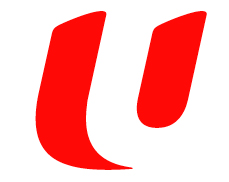Related Research Articles

The Australian Council of Trade Unions (ACTU), originally the Australasian Council of Trade Unions, is the largest peak body representing workers in Australia. It is a national trade union centre of 46 affiliated unions and eight trades and labour councils. The ACTU is a member of the International Trade Union Confederation.

The Transport and General Workers' Union was one of the largest general trade unions in the United Kingdom and Ireland—where it was known as the Amalgamated Transport and General Workers' Union (ATGWU)—with 900,000 members.

The National Trades Union Congress (NTUC), also known as the Singapore National Trades Union Congress (SNTUC) internationally, is the sole national trade union centre in Singapore. NTUC leads the labour movement of Singapore, comprising 59 affiliated trade unions, 5 affiliated trade associations, 6 social enterprises, 6 related organisations and other enterprise partners.
Community is a British trade union which formed in 2004. The union represents workers in a diverse range of sectors, including iron and steel, justice and custodial, domestic appliance manufacturing, textiles and footwear, road transport, betting, the third sector, education and early years as well as the self-employed.

The Modern Records Centre (MRC) is the specialist archive service of the University of Warwick in Coventry, England, located adjacent to the Central Campus Library. It was established in October 1973 and holds the world's largest archive collection on British industrial relations, as well as archives relating to many other aspects of British social, political and economic history.
Trade unions in South Africa has a history dating back to the 1880s. From the beginning unions could be viewed as a reflection of the racial disunity of the country, with the earliest unions being predominantly for white workers. Through the turbulent years of 1948–1991 trade unions played an important part in developing political and economic resistance, and eventually were one of the driving forces in realising the transition to an inclusive democratic government.

The Electrical, Electronic, Telecommunications and Plumbing Union, known as the EETPU, was a British trade union formed in 1968 as a union for electricians and plumbers, which went through three mergers from 1992 to now be part of Unite the Union.
Trade unions in Ghana first emerged in the 1920s and have played an important role in the country's economy and politics ever since.
The Industrial and Commercial Workers' Union (ICU) was a trade union and mass-based popular political movement in southern Africa. It was influenced by the syndicalist politics of the Industrial Workers of the World, as well as by Garveyism, Christianity, communism, and liberalism.

The Irish Trades Union Congress (ITUC) was a union federation covering the island of Ireland.

The Ghana Trades Union Congress is a national centre that unites various workers' organizations in Ghana. The organization was established in 1945.
The Health Services Workers' Union (HSWU) is a trade union representing skilled workers in the health sector in Ghana.

The Trades Union Congress (TUC) is a national trade union centre, a federation of trade unions that collectively represent most unionised workers in England and Wales. There are 48 affiliated unions with a total of about 5.5 million members. Paul Nowak is the TUC's current General Secretary, serving from January 2023.
The General Council of the Trades Union Congress is an elected body which is responsible for carrying out the policies agreed at the annual British Trade Union Congresses (TUC).
The GCHQ trade union ban was a ban on trade union membership of employees at the Government Communications Headquarters in Cheltenham between 1984 and 1997. This was based on the claim by the Conservative government that it undermined national security. It sparked a dispute which became a cause célèbre, one of the most important trade union issues of the 1980s and the second longest continuously fought dispute in British trade union history.
John Kofi Barku Tettegah (1930–2009) was a Ghanaian trade unionist, diplomat, and politician. He held many influential positions in Ghana's government especially during the Nkrumah government, where he served as general-secretary of the Gold Coast Trades Union Congress (TUC), as a Convention People's Party (CPP) central committee member, and secretary-general of the All-African Trade Union Federation. He was influential to Kwame Nkrumah's domestic and foreign policy, and remains one of the most influential political organizers in Ghanaian labor history.
The Union of Industry, Commerce and Finance (UNICOF) is a trade union representing workers in various sectors, in Ghana.
The General Agricultural Workers' Union (GAWU) is a trade union representing workers in the agriculture sector in Ghana.
The Construction and Building Materials Workers' Union (CBMWU) is a trade union representing workers in the building and road construction industries in Ghana.
References
- ↑ "Industrial and Commercial Workers Union concerned about formation of splinter groups". Ghana Broadcasting Corporation. 28 February 2017. Retrieved 9 July 2021.
- ↑ "Industrial Relations in Ghana". Industrial and Labour Relations Review. 1960.
- 1 2 "The Case of Ghana" (PDF). Friedrich Ebert Stiftung. February 2004. Retrieved 20 October 2019.
- 1 2 3 4 Kraus, J. (2007). Trade Unions and the Coming of Democracy in Africa. Springer. pp. 104–110. ISBN 978-0230610033.
- ↑ "Trade Unions and Industrial Relations in Ghana" (PDF). Trades Union Congress. Retrieved 11 February 2020.
- ↑ "Attempts to eject Industrial and Commercial Workers' Union from Hall of Trade Unions heighten tension with TUC". GBC Ghana. 4 March 2019. Retrieved 11 February 2020.